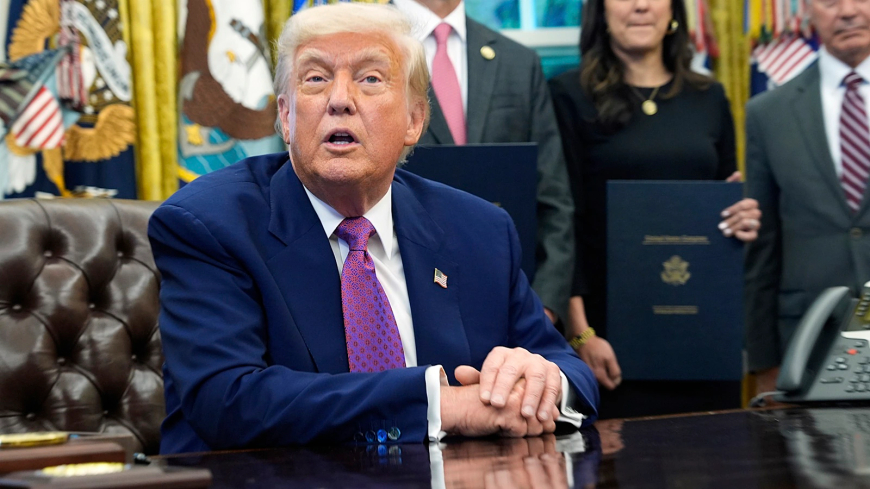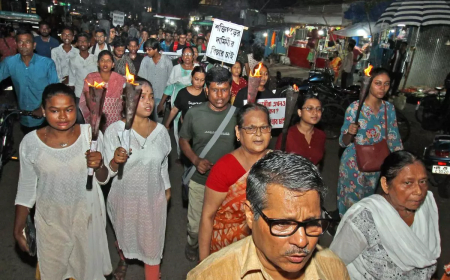Washington/New Delhi, May 31 : US President Donald Trump has once again claimed that American diplomatic and trade pressure played a key role in halting recent hostilities between India and Pakistan. Speaking at the White House during an event marking Elon Musk’s departure from his advisory role at the Department of Government Efficiency (DOGE), Trump suggested that trade leverage was a decisive factor in averting a potential nuclear crisis.
“We stopped India and Pakistan from fighting. I believe that could have turned into a nuclear disaster,” Trump stated. “We talk trade, and we say we can't trade with people who are shooting at each other and potentially using nuclear weapons. They’re great leaders in those countries, and they understood and agreed.”
Trump’s remarks come amid ongoing debate over the extent of international influence—particularly from Washington—in the de-escalation process that followed the outbreak of cross-border tensions earlier this month.
However, India has firmly rejected the notion that any external pressure, including trade negotiations, influenced its military decisions. The Ministry of External Affairs (MEA) responded on Friday by reiterating that the cessation of hostilities on May 10 was the result of direct military-level communication between the Directors General of Military Operations (DGMOs) of both countries.
"Our position on this particular issue has been well articulated," said MEA Spokesperson Randhir Jaiswal. “From the time Operation Sindoor commenced on May 7 till the understanding on cessation of firing and military action on May 10, there were conversations between Indian and US leaders. However, the issue of trade or tariffs did not come up in any of those discussions.”
Jaiswal emphasized that the decision to cease hostilities was arrived at independently through established military channels. “The External Affairs Minister has also made it clear that the cessation of firing was decided upon through direct contact between the DGMOs of India and Pakistan,” he added.
The latest flare-up began after the Pahalgam terror attack on May 6, prompting India to launch Operation Sindoor—a series of precision strikes targeting terror infrastructure across the Line of Control (LoC) in Pakistan and Pakistan-occupied Jammu and Kashmir (PoJK). The operation, according to Indian defense sources, was followed by Pakistani retaliatory actions, which India successfully repelled before the ceasefire agreement was reached.
While Trump has frequently taken credit for global diplomatic breakthroughs during his tenure, Indian officials have consistently maintained that the country's defense and foreign policy decisions are sovereign and guided by national interest.
As regional stability remains fragile, both countries have signaled willingness to maintain the ceasefire, although the root causes of tensions—cross-border terrorism and Kashmir—remain unresolved.




 Previous
Article
Previous
Article











